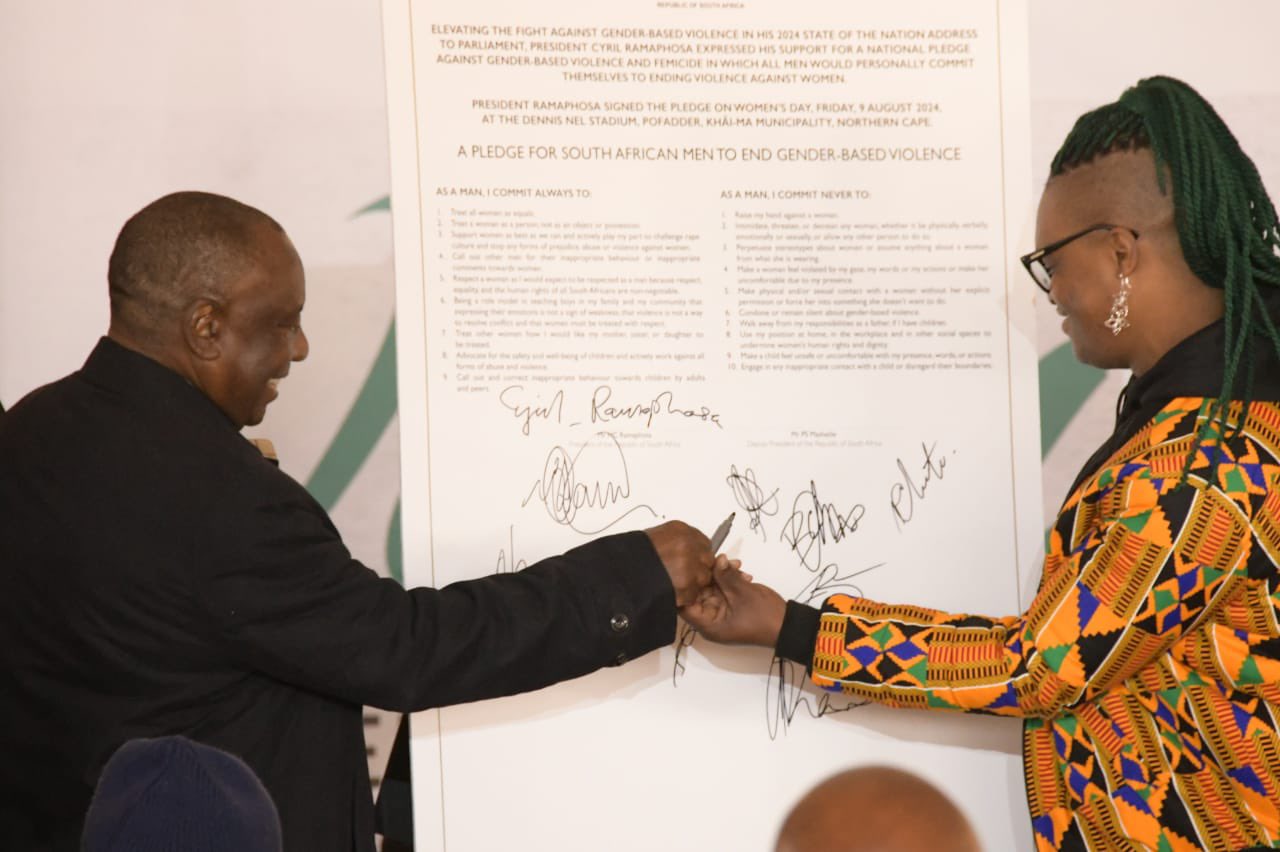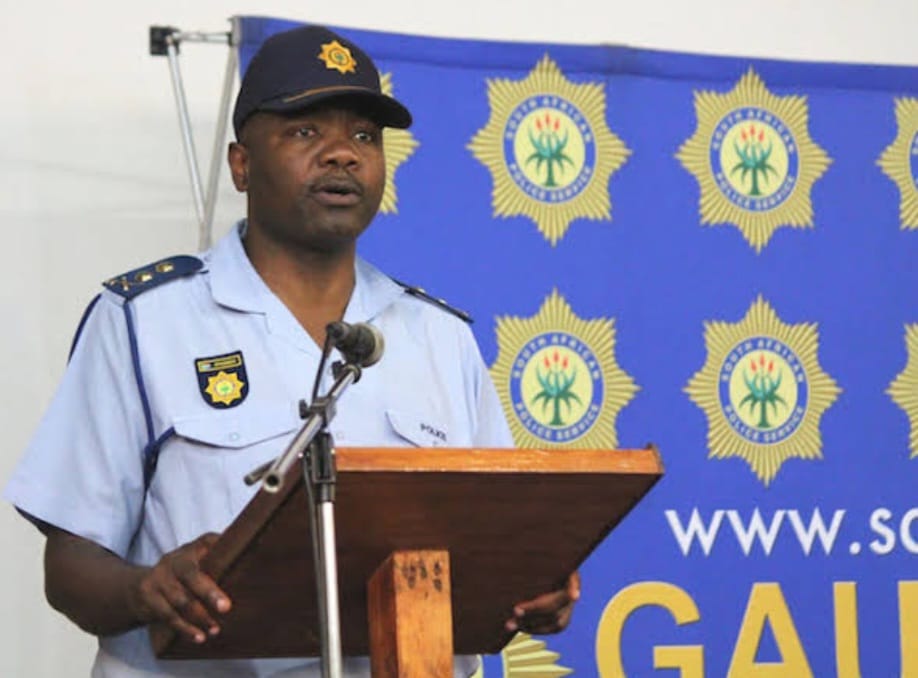Delivering his keynote address for Women's Day celebrations at the Dennis Nel Stadium in the Northern Cape, President Cyril Ramaphosa said 30 years after the Women's Charter was adopted, the government continues with efforts to protect women and children.
STOP GBV
As part of the day's celebrations, Ramaphosa led the official signing of a pledge against gender-based violence. "We have introduced new laws that protect survivors of gender-based violence, improve the response of the police, and ensure harsher sentences for perpetrators. We've opened additional sexual offence courts. We have expanded our network of Thuthuzela Care Centres," he said. Ramaphosa also pleaded with men to change their behaviour and attitudes towards women. "We call on all South African men to make a pledge to be part of the solution. To take responsibility for their actions. To never raise a hand against a woman. If we are to end gender-based violence, we must work together as a society,' Ramaphosa said.
WOMEN UNEMPLOYMENT
Ramaphosa also said that South Africa remains an unequal country where black women are still the face of poverty. "Black women are more likely to be unemployed, poor, and unskilled. Cultural norms and practices, many of these the products of colonialism and apartheid continue to hold women back. Apartheid broke up families. Men were recruited as migrant labourers, leaving women and children behind to fend for themselves," Ramaphosa said. He added that the results from a recent survey revealed that 13% of women who had been in an intimate relationship are reported to have experienced economic abuse at the hands of their partners. "This is why we need to address the massive inequality in income between men and women. On average, women earn a quarter of their income from grants, compared to a far lower percentage for men. We must therefore create more jobs and other economic opportunities for women. So, they are less vulnerable to exploitation and abuse," he said. The President added that through the Women's Economic Empowerment Programme, about 8,000 women have been trained to establish and manage businesses.







